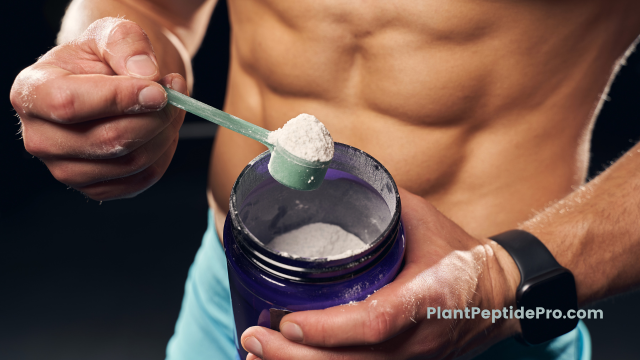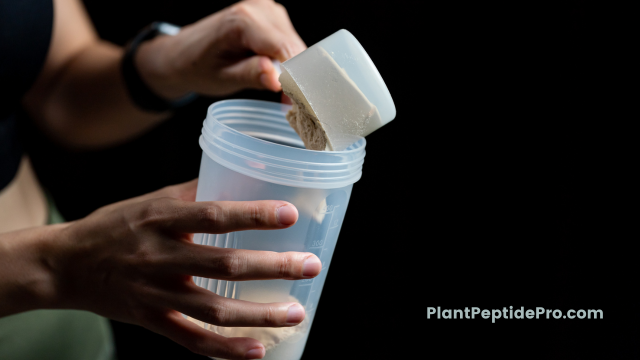Since I share affiliate marketing strategies with awesome people like you, naturally my content may contain affiliate links for products I use and love. If you take action (i.e. subscribe or purchase) after clicking one of these links, I'll earn some coffee money ☕ which I promise to drink while creating more helpful content. My earning a commission has no impact on the price you pay for a given product or service.
Protein Isolates vs. Other Protein Supplements: What's the Difference?

Ever stood in the supplement aisle, scratching your head over the dizzying array of protein powders? You're not alone. As more of us look to boost our protein intake, it's important to understand the options. Today, we're diving into protein isolates vs other protein supplements and how they stack up against each other.
What exactly is a protein isolate?
Are protein isolates better for everyone?
The Bottom Line
What exactly is a protein isolate?Protein isolates are the purest form of protein you can get in a supplement. They've gone through an extra step of processing to remove more fat and carbs, leaving you with a product that's about 90-95% pure protein. That's a pretty impressive protein punch in each scoop!
How do they compare to other protein supplements?
Let's take a look.
The most common types of protein supplements you'll encounter are:
Protein concentrates are the most basic form. They typically contain about 70-80% protein, with the rest being fats and carbs. Think of them as the entry-level option in the protein supplement world.
Protein isolates, as we mentioned, take things up a notch with their higher protein content. They're like the concentrates' more refined cousin.
Protein hydrolysates are the fancy ones. They've been partially broken down, making them faster to absorb. However, they often come with a higher price tag and can have a nasty taste.
So why choose a protein isolate?
Protein isolates shine in several areas:
1. You get a higher amount of protein per serving.
2. They're lower and fats and carbs.
3. They're usually easier to digest.
4. Fewer fats and carbs make them great for folks watching their calorie intake
Are you trying to build muscle while keeping an eye on your waistline? A protein isolate might be your new best friend.
Are protein isolates better for everyone?
Not necessarily. If you're not concerned about the extra calories or if you're looking for a more budget-friendly option, a protein concentrate might suit you just fine. It's all about matching the supplement to your specific needs and goals.

What about plant-based options?
Good news for our plant-powered friends! Protein isolates aren't just for whey. You can find excellent plant-based isolates made from pea, rice, and even hemp proteins. These can be a great option if you're lactose intolerant or following a vegan diet.
The Bottom Line
Choosing between protein isolates and other supplements comes down to your personal needs, goals, and budget. Isolates offer a purer protein source with fewer extras, which can be ideal for those focused on lean muscle gain or weight management.
Remember, though, that supplements are just that – supplemental. They're meant to complement a balanced diet, not replace whole food sources of protein.
So, next time you're facing that wall of protein powders, you'll be armed with the knowledge to make the choice that's right for you. After all, isn't it time we all felt a little more confident in our supplement decisions?
If you want to check it out, here’s the plant-based protein I’m using these days. It checks off all the boxes and tastes pretty good, too. These folks also sell a clean grass-fed whey protein if that's more your style.